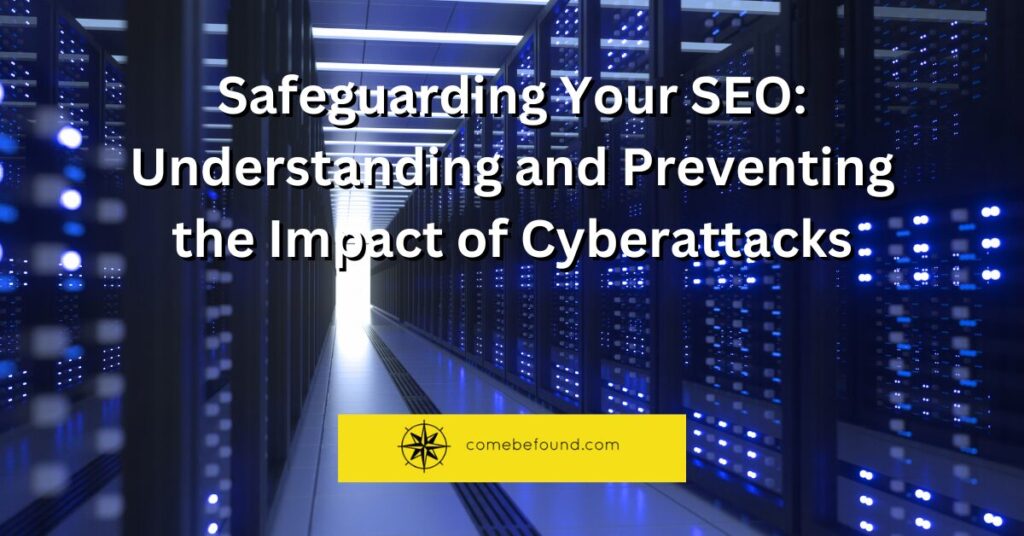As businesses strive to enhance their online visibility, cyberattacks pose a significant threat to, among other things, their online performance. This article explores the impact of cyberattacks on SEO and provides insights into preventive measures.
The Risks of AI and “Content Hacking”
The use of artificial intelligence (AI) has become increasingly prevalent across many digital mediums. However, this very technology that aids in automating and optimizing processes also poses a severe threat. Cybercriminals may exploit AI tools and systems to manipulate search engine rankings by engaging in what is called “content hacking.” By leveraging automated tools to generate and disseminate malicious content, attackers can damage a website’s credibility, which ultimately can impact your actual performance in search results.
Prevention Tip: Regularly monitor and audit your website’s content to detect any anomalies or unauthorized changes. Also, setting up automated crawlers for content and social media posts concerning your brand or services can help you become aware of an issue and be able to address it sooner rather than later.
Monitor Your Backlinks
Backlinks play a crucial role in SEO, influencing a website’s credibility and authority. However, cyber attackers often target this aspect by engaging in negative SEO practices such as building low-quality or toxic backlinks. These malicious tactics can lead to a sudden drop in rankings or even manual penalties.
Prevention Tip: Regularly monitor your backlink profile using tools like Google Search Console or third-party applications. Disavow any suspicious or harmful backlinks to protect your website’s SEO integrity.
The Dangers of Web Builder App Stores
The accessibility and ease of use associated with web builder application stores have made them popular choices for individuals and businesses alike. However, these platforms can become breeding grounds for cyberattacks. Malicious apps or plugins can compromise a website’s security, leading to potential SEO disasters.
Prevention Tip: Vet and validate the security credentials of apps or plugins before integrating them into your website. Regularly update and patch any installed applications to minimize vulnerabilities.
Protecting Against DDoS Attacks
Distributed Denial of Service (DDoS) attacks can disrupt a website’s normal functioning by overwhelming it with a massive influx of junk traffic. While the immediate impact is on website availability, the aftermath can harm SEO performance as a frequently unresponsive or unavailable site can leave a bad taste for your visitors, and if it happens to occur during a search engine crawl, it can cause larger headaches.
Prevention Tip: Employ DDoS protection services and tools to mitigate the risk of attacks. Ensure your hosting infrastructure is robust enough to handle sudden spikes in traffic.
Securing Sensitive Data to Prevent Penalization
The user experience should be a priority for any website, and included with that experience is the protection of sensitive user data. Cyberattacks targeting websites that are susceptible to data breaches due to old security systems, outdated patches, or poor security posture can obviously lead to serious issues. The result of those issues can also cause a negative impact on your reputation and erode trust in your brand, which can also cause users to take notice and avoid your website.
Prevention Tip: Implement robust security measures such as SSL certificates to encrypt data transmission. Regularly update and patch software to address vulnerabilities that could be exploited by attackers.
The Bottom Line
As digital technologies mature and grow, so do the tactics employed by cyber attackers. Safeguarding your website and SEO requires a proactive approach that addresses potential vulnerabilities at every level. By understanding the risks associated with AI, backlinks, web builder app stores, DDoS attacks, and data security, businesses can implement preventive measures internally or with trusted vendors to fortify their online presence and protect against the ever-present threat of cyberattacks.

